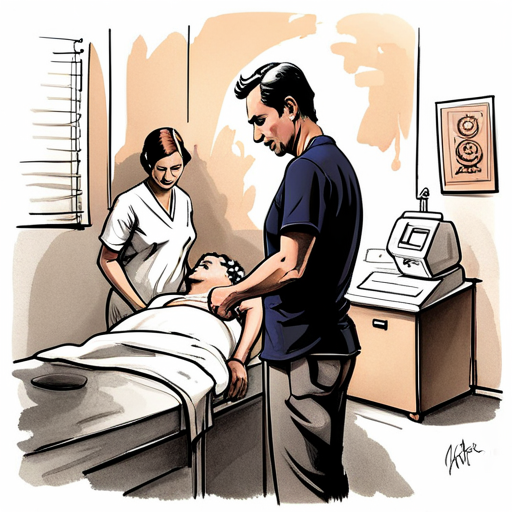What You Need to Know About Colon Cancer
Colon cancer is a critical public health issue with significant impacts on individuals and families worldwide. As one of the leading causes of cancer-related deaths, understanding this disease is vital for early detection, effective treatment, and possibly prevention. This blog post aims to arm you with knowledge about colon cancer, touching on its causes, symptoms, types, treatment options, and ways you might be able to prevent it.
Understanding Colon Cancer
Causes and Risk Factors
The exact cause of colon cancer isn’t entirely understood; however, several risk factors have been identified. These include age (primarily affecting those over 50), a family history of colorectal cancer, genetic syndromes like familial adenomatous polyposis, lifestyle factors such as diet and exercise, and certain diseases like inflammatory bowel disease. Additionally, studies have shown that people who smoke, consume excessive alcohol, and are obese are at a higher risk of developing colon cancer.
Symptoms and Early Detection
Colon cancer often starts from small, noncancerous clumps of cells called adenomatous polyps. Over time some of these polyps can develop into colon cancers. Symptoms may include changes in bowel habits, abdominal discomfort, unexplained weight loss, fatigue, and rectal bleeding. Early detection through proactive screening is critical as it can lead to more successful treatment outcomes.
Diagnostic Tests and Screenings
Several screening tests for colon cancer are available, including colonoscopies, fecal occult blood tests (FOBT), and stool DNA tests. Individuals are usually advised to begin screening at the age of 45 and continue at regular intervals unless otherwise directed by a healthcare provider. A colonoscopy is considered the gold standard for colon cancer screening, as it allows for both detection and removal of polyps during the same procedure. It involves inserting a thin, flexible tube with a camera into the rectum to examine the entire length of the colon.
Fecal occult blood tests (FOBT) and stool DNA tests are non-invasive options that can be done at home. FOBTs detect hidden blood in stool samples and may indicate the presence of polyps or cancer. Stool DNA tests look for abnormal cells shed by colorectal cancers or precancerous polyps. Both these tests require further follow-up if positive results are found.
Treatment Options
If a diagnosis of colon cancer is confirmed, treatment plans will vary depending on
Types and Stages of Colon Cancer
Different Types of Colon Cancer
The majority of cancers are adenocarcinomas, but there are other less common types such as carcinoid tumors, gastrointestinal stromal tumors (GISTs), lymphomas, and sarcomas. Each type can behave differently and may require unique treatment approaches.
Staging and Prognosis
Staging refers to the extent of cancer spread, which helps doctors determine the best treatment plan. Early-stage colon cancers have a better prognosis compared to those diagnosed at later stages. The five-year relative survival rate for localized cancer (meaning it has not spread beyond the colon) is currently 90%.
Treatment Options
Surgery
Surgery is often the primary treatment for localized cancer and may be combined with other treatments for more advanced disease stages.
Chemotherapy
Chemotherapy uses drugs to destroy cancer cells or stop their reproduction and may be used before or after surgery, depending on the cancer’s stage.
Radiation Therapy
While not as commonly used for colon cancer as for rectal cancer, radiation therapy may be recommended in certain cases to shrink tumors before surgery or eliminate remaining cells afterward.
Targeted Therapy
Targeted therapy drugs target the specific abnormalities present within cancer cells. Unlike chemotherapy, these drugs aim to minimize damage to normal cells.
Immunotherapy
Immunotherapy helps boost the immune system’s ability to combat cancer and is generally reserved for advanced colon cancer that has specific genetic markers.
Prevention and Lifestyle Changes
Importance of a Healthy Diet
A diet high in fruits, vegetables, and fibers and low in red and processed meats can help reduce the risk of colon cancer. Foods that are high in omega-3 fatty acids, such as fish and nuts, may also be beneficial.
Regular Exercise and Weight Management
Physical activity is associated with a lower risk of colon cancer. Keeping a healthy weight can also reduce your risk.
Quitting Smoking and Limiting Alcohol Consumption
Smoking and heavy alcohol use are known risk factors for many cancers, including colon cancer.
Screening Guidelines and Prevention Strategies
Screening for colon cancer is the most effective strategy for prevention. Early detection of polyps or cancer can lead to a better outcome.
What role can your pharmacist play in prevention and treatment?
Pharmacists play a crucial role in both the prevention and treatment of colon cancer. They can provide important information about lifestyle changes, such as diet and exercise, that can help reduce the risk of developing the disease. Pharmacists can also advise on over-the-counter medications that may be beneficial for preventing or managing symptoms.
Support and Resources
Support Groups and Organizations
Numerous support groups and organizations are dedicated to providing resources for individuals affected by colon cancer.
Online Resources and Informational Websites
Websites such as the American Cancer Society offer comprehensive information about treatment options, support networks, and prevention tips for colon cancer.
Conclusion
Colon cancer does not discriminate, affecting individuals globally irrespective of background or lifestyle. Awareness, early detection, and understanding your risk are central to combating this disease. By taking active measures towards a healthy lifestyle, regular screening, and gathering the right support and resources, we can work towards mitigating risks and achieving better outcomes for those affected by colon cancer. Remember, knowledge is power when it comes to your health – stay informed, stay vigilant, and do not hesitate to consult a healthcare provider if you notice any concerning symptoms.
Link to Cancer medications
